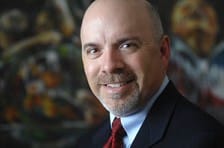A special job

.floatimg-left-hort { float:left; } .floatimg-left-caption-hort { float:left; margin-bottom:10px; width:300px; margin-right:10px; clear:left;} .floatimg-left-vert { float:left; margin-top:10px; margin-right:15px; width:200px;} .floatimg-left-caption-vert { float:left; margin-right:10px; margin-bottom:10px; font-size: 12px; width:200px;} .floatimg-right-hort { float:right; margin-top:10px; margin-left:10px; margin-bottom:10px; width: 300px;} .floatimg-right-caption-hort { float:left; margin-right:10px; margin-bottom:10px; width: 300px; font-size: 12px; } .floatimg-right-vert { float:right; margin-top:10px; margin-left:10px; margin-bottom:10px; width: 200px;} .floatimg-right-caption-vert { float:left; margin-right:10px; margin-bottom:10px; width: 200px; font-size: 12px; } .floatimgright-sidebar { float:right; margin-top:10px; margin-left:10px; margin-bottom:10px; width: 200px; border-top-style: double; border-top-color: black; border-bottom-style: double; border-bottom-color: black;} .floatimgright-sidebar p { line-height: 115%; text-indent: 10px; } .floatimgright-sidebar h4 { font-variant:small-caps; } .pullquote { float:right; margin-top:10px; margin-left:10px; margin-bottom:10px; width: 150px; background: url(http://www.dmbusinessdaily.com/DAILY/editorial/extras/closequote.gif) no-repeat bottom right !important ; line-height: 150%; font-size: 125%; border-top: 1px solid; border-bottom: 1px solid;} .floatvidleft { float:left; margin-bottom:10px; width:325px; margin-right:10px; clear:left;} .floatvidright { float:right; margin-bottom:10px; width:325px; margin-right:10px; clear:left;}
What got you into nonprofit management?
In college, I worked for political campaigns, and ironically, coming out of Drake (University), I answered an ad in the newspaper that was for a campaign fund-raiser and I thought at the time that it was a political campaign. It turned out to be for United Way.
What was your career path to Special Olympics?
I went to United Way in Waterloo and relocated back to the Des Moines area to complete my master’s and worked for some nonprofits here locally and ended up at Make-A-Wish Foundation. I was there for a little over nine years. I still volunteer for them, but I also had an opportunity to come to Special Olympics and I felt it was a perfect fit for me.
Since you came on as CEO Jan. 1, what’s been your day-to-day focus?
I think it’s getting out and going to the various areas across the state and making sure I have an opportunity to meet with our volunteers and hear what changes they may want and what things they may want to stay the same so we can continue to serve as many athletes as we can.
How do you want the organization to grow?
There are approximately 55,000 to 60,000 people in Iowa right now who would qualify to participate in Special Olympics, but clearly not everyone knows about it. One of my main goals is to communicate that message of inclusiveness and that we want everyone who can to be touched by Special Olympics. We have approximately 13,000 athletes across Iowa that participate in Special Olympics on an annual basis. None of our athletes pay to participate, so in a tough economy, while we want to grow, we also have to do it within reason because we can’t jeopardize the current program by us going too fast and not thinking how do we fund that, how do we make sure they have the resources and the training they need in order to compete.
What’s the best part of the job for you?
When you have athletes come up to you and want to have their picture taken with you, and they admire what you do, and you have volunteers who want to talk to you, and they feel good about the organization. I’ve always felt that, but I think I’m probably more in the spotlight now. What I like best about the job is the feeling I get at the end of the day that we made a difference in someone’s life. I’ve always thought that success is not defined by what we accomplish but more important what we’ve overcome, and our athletes epitomize that.
What’s the most challenging part of your job?
Well, there are a lot of people that come to you for a lot of questions. I’m the last decision maker, so the harder part of the job is making sure you have time for everyone who needs your help and yet enough time to get the other things done.
Is there an accomplishment you’re most proud of?
I was involved in the team that helped put together the first Jolly Holiday Lights for Make-A-Wish Foundation, and now it’s become a huge fund-raiser for them. At Special Olympics, probably my most enjoyable moment was our 2006 U.S. National Games. I was one of the individuals who handed out medals and I was doing the dead lift. The athlete who won the dead lift, he had just lifted I think close to 600 pounds. When he got up on the award stand, he was congratulating all the other athletes and they were just as excited for him that he had won. When he got the medal around his neck, he raised his arms up and he said, “Hey, Mom, we did it.” He was the star for that day but it never went to his head. That was a really powerful moment for me.
If you were to have a weekend completely free of obligations, what would you do?
I’d spend it with my wife; we’d probably just relax and spend quality time at home, maybe go out to dinner.
How would you describe your leadership style?
My style is to hire the right people and let them do their jobs. I’m not what you would call a micromanager. And give time for people. In this business, we serve people every day. You have to have time for your staff, too; otherwise you’re not being true to your own mission.








